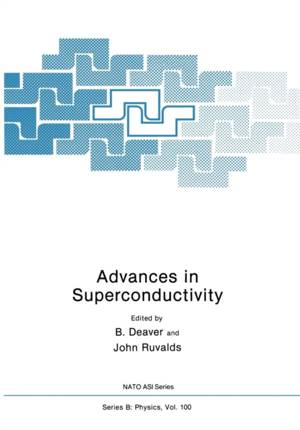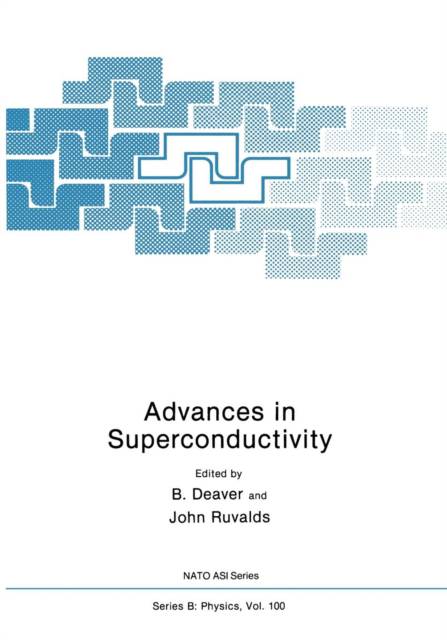
- Afhalen na 1 uur in een winkel met voorraad
- Gratis thuislevering in België vanaf € 30
- Ruim aanbod met 7 miljoen producten
- Afhalen na 1 uur in een winkel met voorraad
- Gratis thuislevering in België vanaf € 30
- Ruim aanbod met 7 miljoen producten
Zoeken
Omschrijving
The Advanced Study Institute on "Advances in Superconductivity" was held at the Ettore Majorana Centre for Scientific Culture in Erice, Sicily, during July 3 to July 15, 1982. This Institute was the third course of the International School of Low Tempera- ture Physics, which was established at the Centre in 1977 with the guidance and inspiration of T. Regge and A. Zichichi. The 1982 Course was centered on a topic which brought together fundamental basic research and the most recent promising technological applications. Accordingly, the participants represented a wide spectrum of industrial and government laboratories, as well as universities from various countries. The program of topics and speakers was developed with the advice of the Organizing Committee, composed of H. Frohlich, T. Regge, B. Stritzker, and L. Testardi. This Institute emphasized recent developments in the science and technology of superconductivity. A historical perspective was provided by H. Frohlich, whose lectures recall the earliest discoveries and theoretical attempts to understand superconductivity. Ironically, his early suggestion of the electron-phonon coupling as a key to superconductivity was met with initial widespread skepticism. Later, the development of field theory methods for solid state physics problems, and the evolution of the BCS theory has led to a seemingly unanimous concensus regarding the e1ectron- phonon mechanism as the predominant source of superconductivity in known materials. Experimental studies of superconductivity exemplify the strong interplay of science and technology in many ways.
Specificaties
Betrokkenen
- Auteur(s):
- Uitgeverij:
Inhoud
- Aantal bladzijden:
- 529
- Taal:
- Engels
- Reeks:
Eigenschappen
- Productcode (EAN):
- 9781461399568
- Verschijningsdatum:
- 16/04/2013
- Uitvoering:
- Paperback
- Formaat:
- Trade paperback (VS)
- Afmetingen:
- 178 mm x 254 mm
- Gewicht:
- 925 g

Alleen bij Standaard Boekhandel
+ 167 punten op je klantenkaart van Standaard Boekhandel
Beoordelingen
We publiceren alleen reviews die voldoen aan de voorwaarden voor reviews. Bekijk onze voorwaarden voor reviews.











